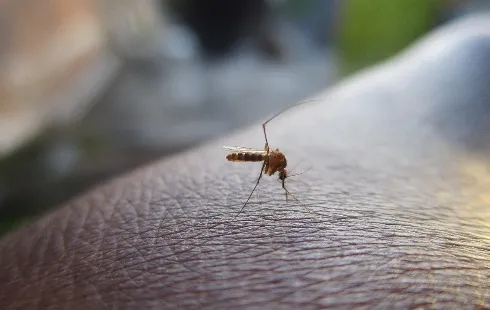
Inside the Conclave: 10 Fascinating Facts About the Secretive Process to Elect a New Pope
Section: Politics
Switzerland's relationship with its dairy cows, once deemed idyllic, is now strained, presenting significant challenges that affect the climate, biodiversity, and public health. Despite improvements in dairy farming compared to other nations, the consequences of this partnership have become increasingly toxic.
Historically, Switzerland and its cows shared a harmonious existence. The nation provided a safe environment for the cows, while the cows contributed milk and meat, creating a stable relationship. However, over the past few decades, this equilibrium has been disrupted. The Swiss dairy industry now grapples with overpopulation of cows and excessive milk production, leading to environmental issues such as greenhouse gas emissions from methane and pollution from waste.
Experts identify three potential scenarios for the future of this partnership:
Scenario 1: Business as UsualSwitzerland boasts extensive grasslands, deemed unsuitable for crop production. Consequently, the logic dictates that ruminants like cows are essential for converting grass into food. While this reasoning holds some validity, the actual feeding practices reveal a troubling truth: Swiss cows consume not only grass but also a significant portion of concentrated feed, including grains and soy, which could otherwise be used for human consumption.
As the landscape evolves, many cows now spend their lives in valleys rather than grazing in the picturesque mountains. The abandonment of alpine pastures has led to increased nutrient runoff and diminished biodiversity, as forests encroach upon these once vibrant grasslands. Moreover, the cows' waste contributes to ammonia emissions, which have remained stubbornly high despite government efforts to cap them.
Scenario 2: Ending Animal SlaughterAs the demand for milk continues, the dairy industry faces ethical questions about the treatment of calves, particularly males, who are often sold or culled. This cycle of reproduction and slaughter raises significant moral concerns. Some agricultural scientists argue for a shift towards a model of 'post-mortem agriculture,' where animal welfare is prioritized, and slaughter is no longer a necessary component of dairy production.
Research indicates that a plant-based diet could sustain Switzerland without reliance on animal agriculture, suggesting that a transition to a system minimizing or eliminating animal deaths could preserve the country's cherished landscapes while addressing ethical concerns.
Scenario 3: Strict Grassland UtilizationOne radical approach would involve a strict adherence to grassland-based livestock farming, eliminating concentrated feed entirely. This would significantly reduce the cow population, particularly affecting species like pigs and chickens that cannot thrive on grass alone. Implementing such a system requires careful consideration of agricultural practices, but it could free up substantial land for human food production.
The fundamental challenge lies in changing the perception and management of Swiss landscapes. Maintaining grasslands not only benefits biodiversity but also sustains traditional views of Switzerland's natural beauty. Scholars emphasize that successful agricultural reform must include both production and consumption strategies to mitigate the environmental impact of dairy farming.
In conclusion, the ongoing relationship between Switzerland and its cows is at a critical juncture. The nation faces pressing environmental challenges that necessitate a reevaluation of its agricultural practices. Finding a sustainable path forward will require collective action, innovative policies, and a commitment to enhancing the health of both the environment and the agricultural community.

Section: Politics

Section: Health

Section: Health

Section: Politics

Section: Business

Section: Science

Section: Politics

Section: News

Section: News

Section: Politics

Health Insurance in Germany is compulsory and sometimes complicated, not to mention expensive. As an expat, you are required to navigate this landscape within weeks of arriving, so check our FAQ on PKV. For our guide on resources and access to agents who can give you a competitive quote, try our PKV Cost comparison tool.

Germany is famous for its medical expertise and extensive number of hospitals and clinics. See this comprehensive directory of hospitals and clinics across the country, complete with links to their websites, addresses, contact info, and specializations/services.

Join us for an exciting evening of jazz at the EMMAUSKIRCHE on Sunday, May 25, 2025, from 19:00 to 20:30. Experience fresh sounds from the talented young jazz quintet led by Anton Sigling from Harlaching. This group features award-winning musicians from the Federal Competition 'Jugend jazzt' and...
No comments yet. Be the first to comment!